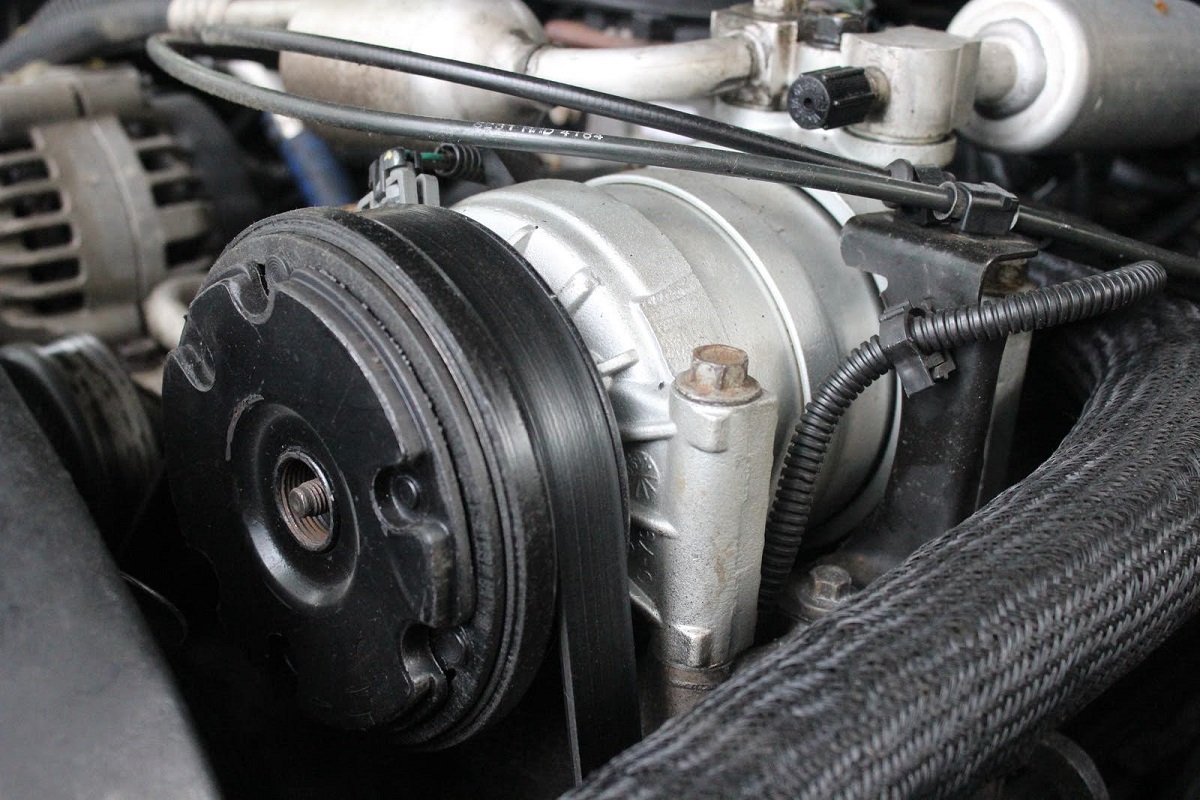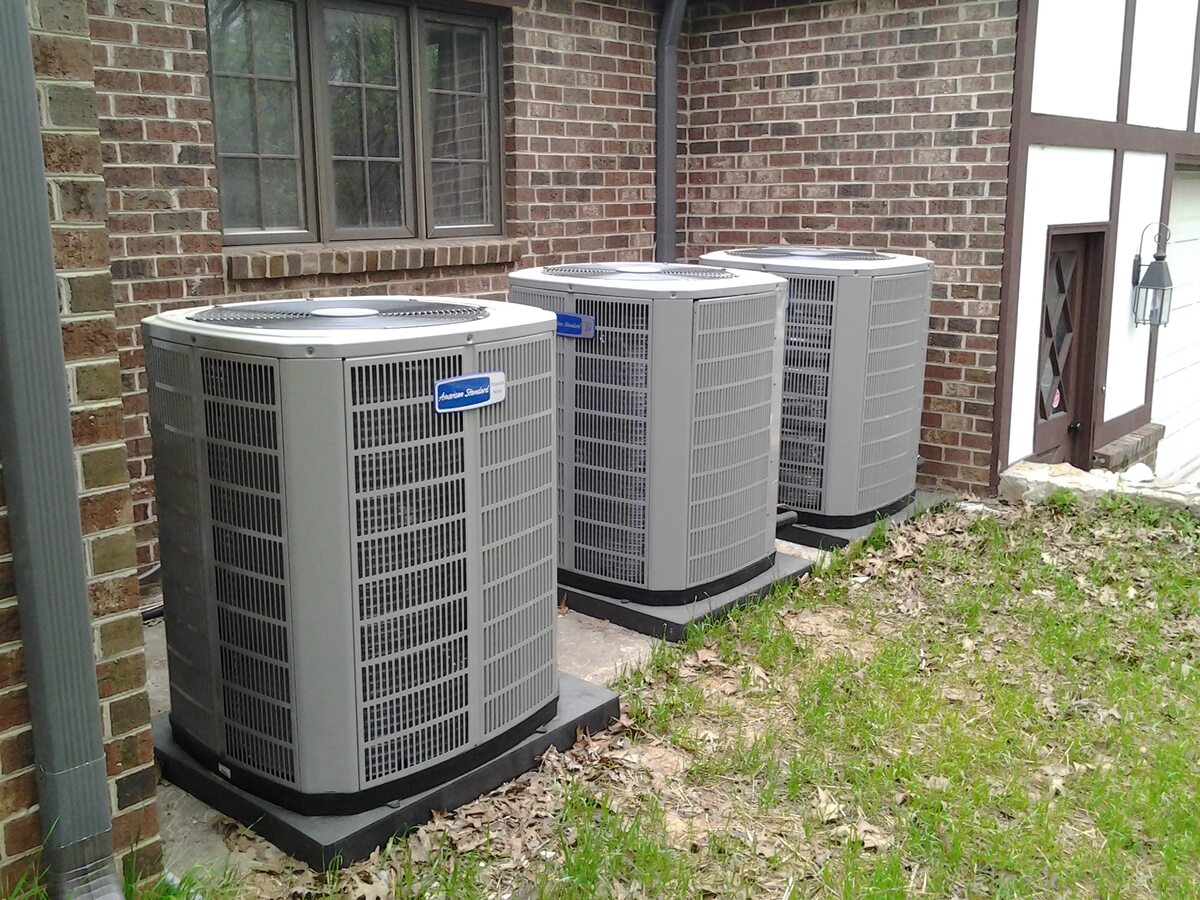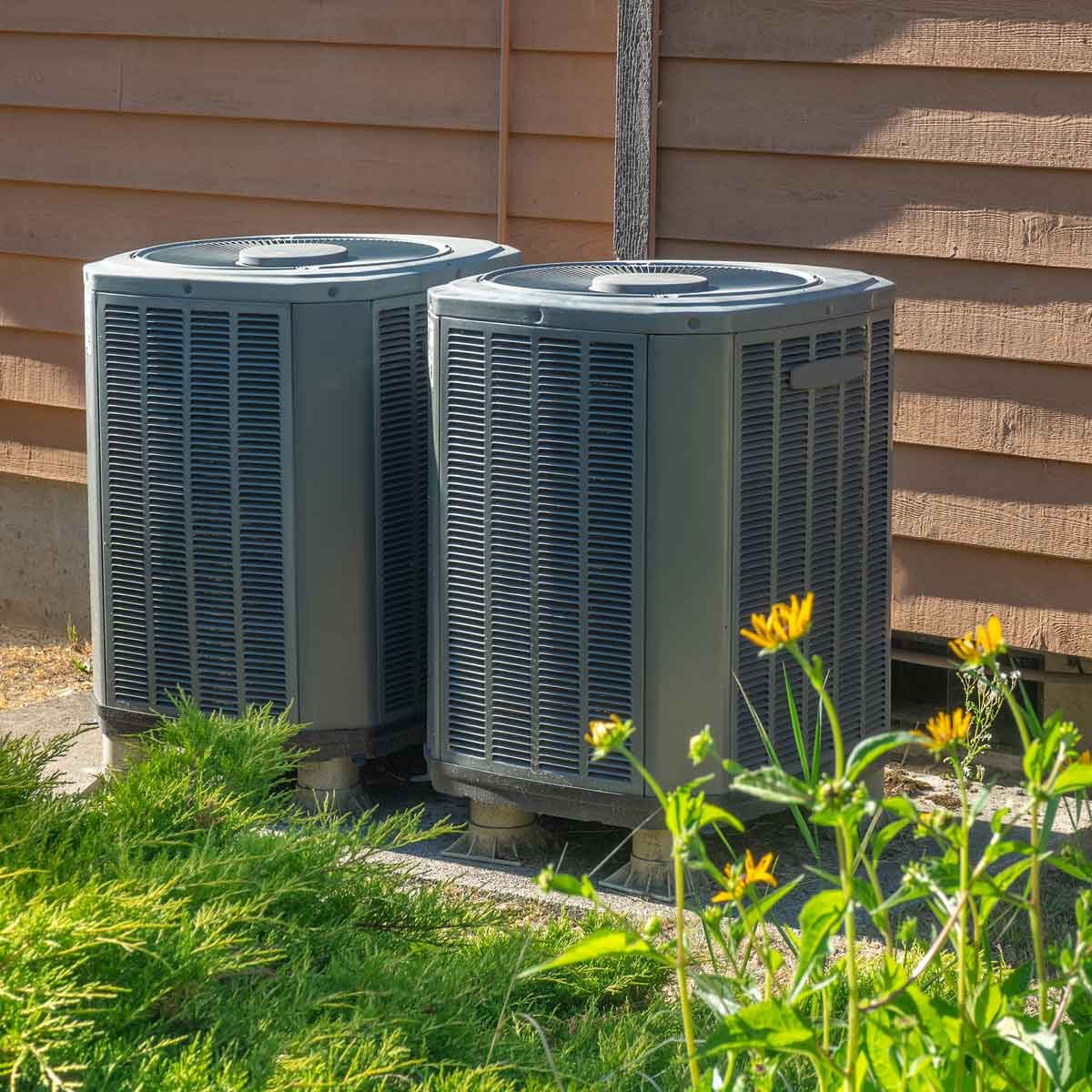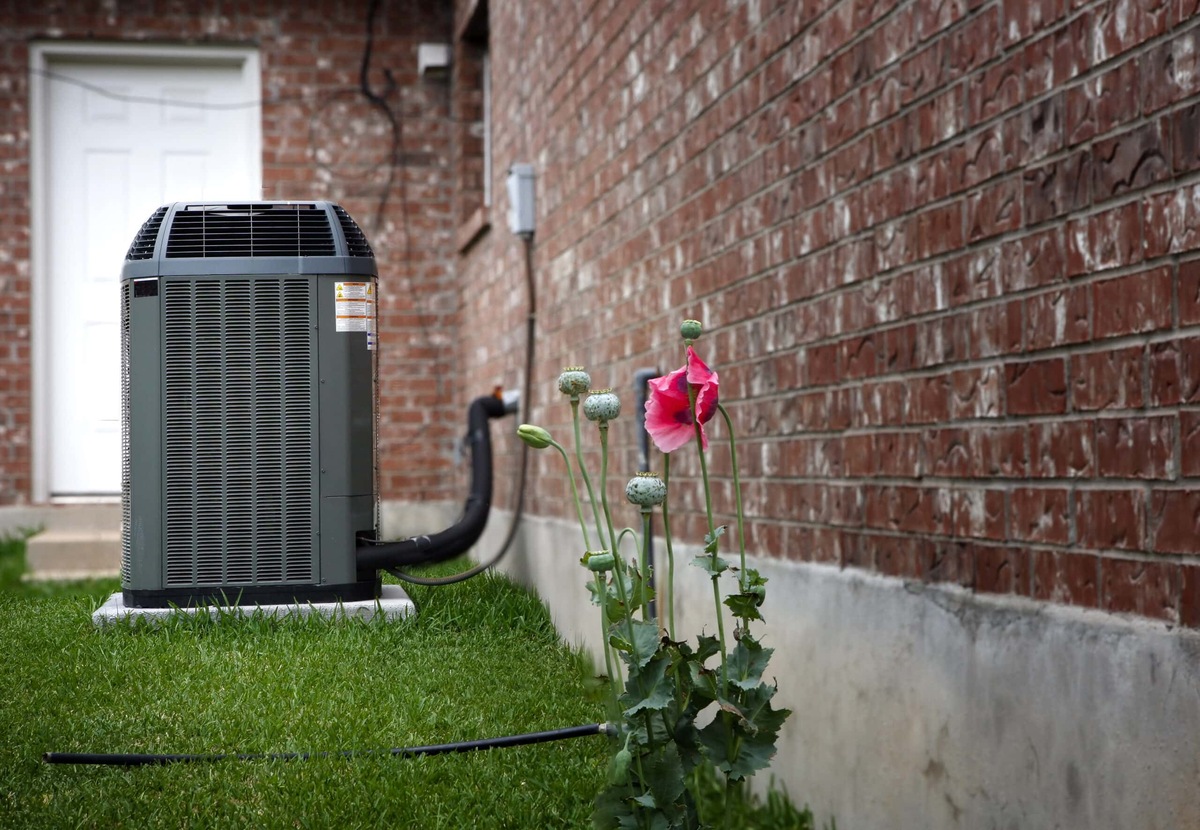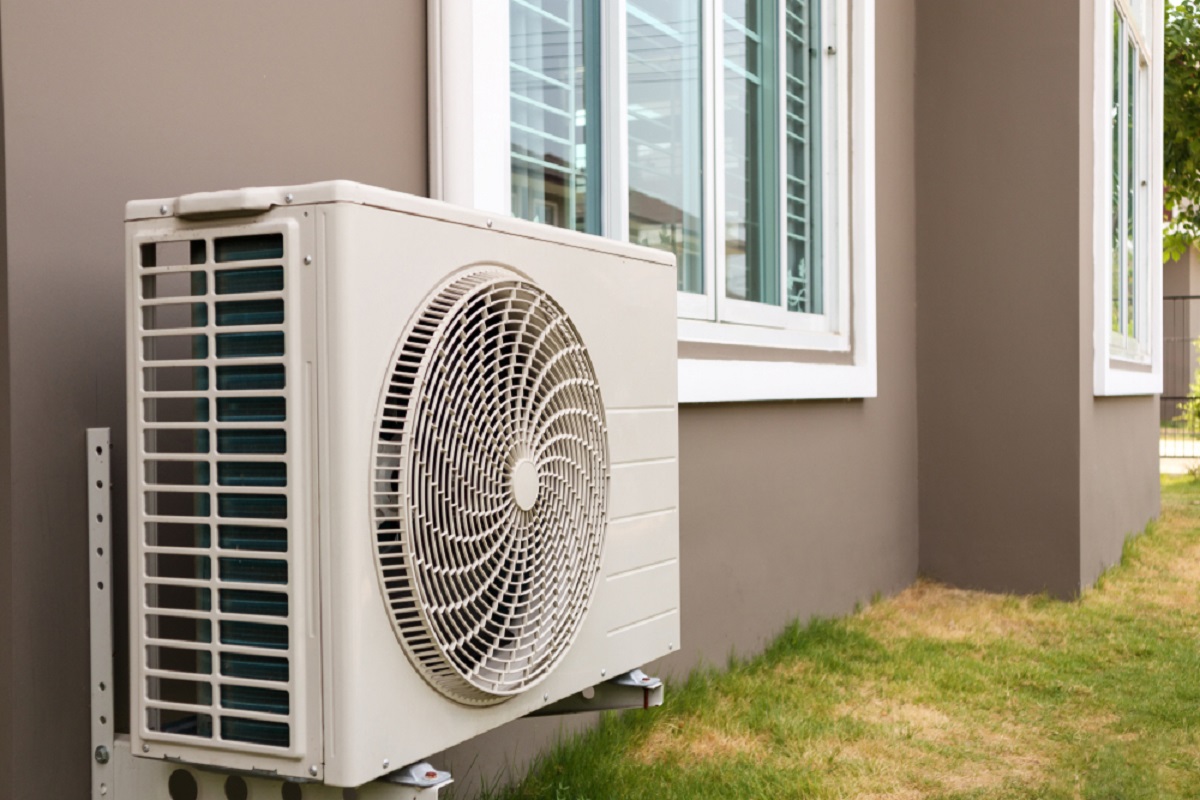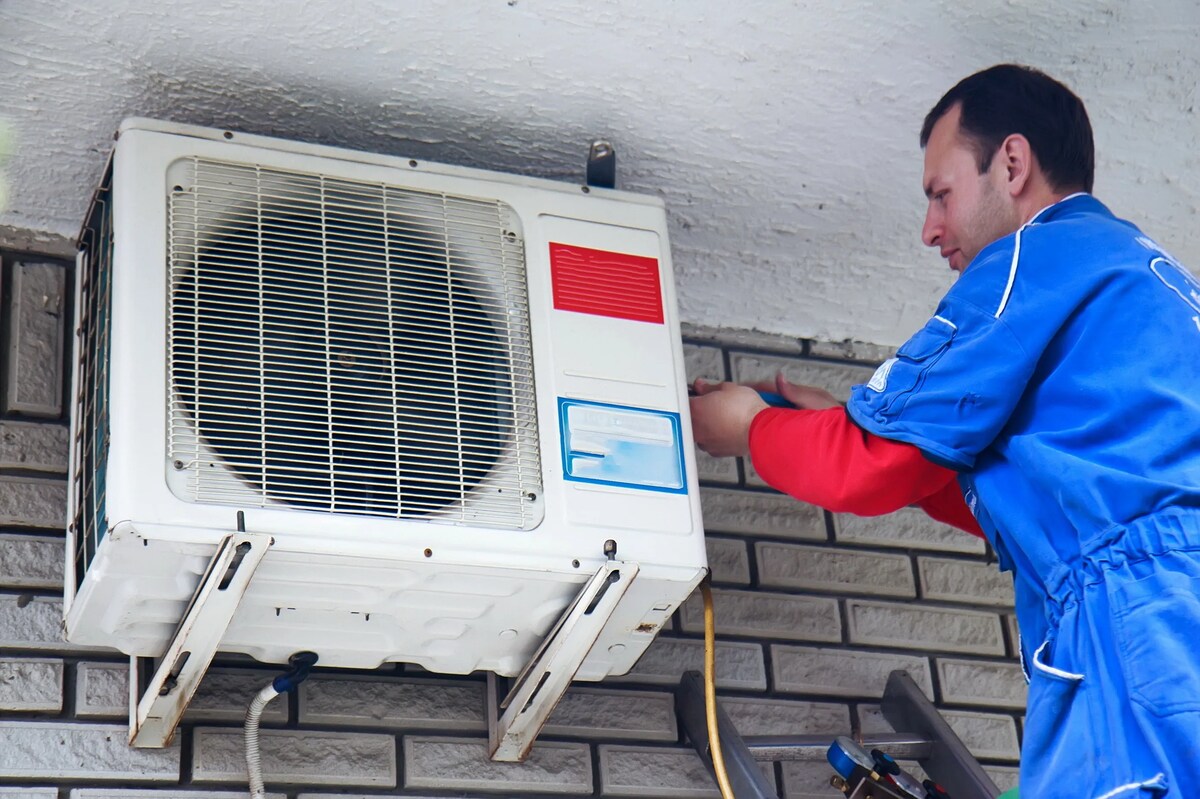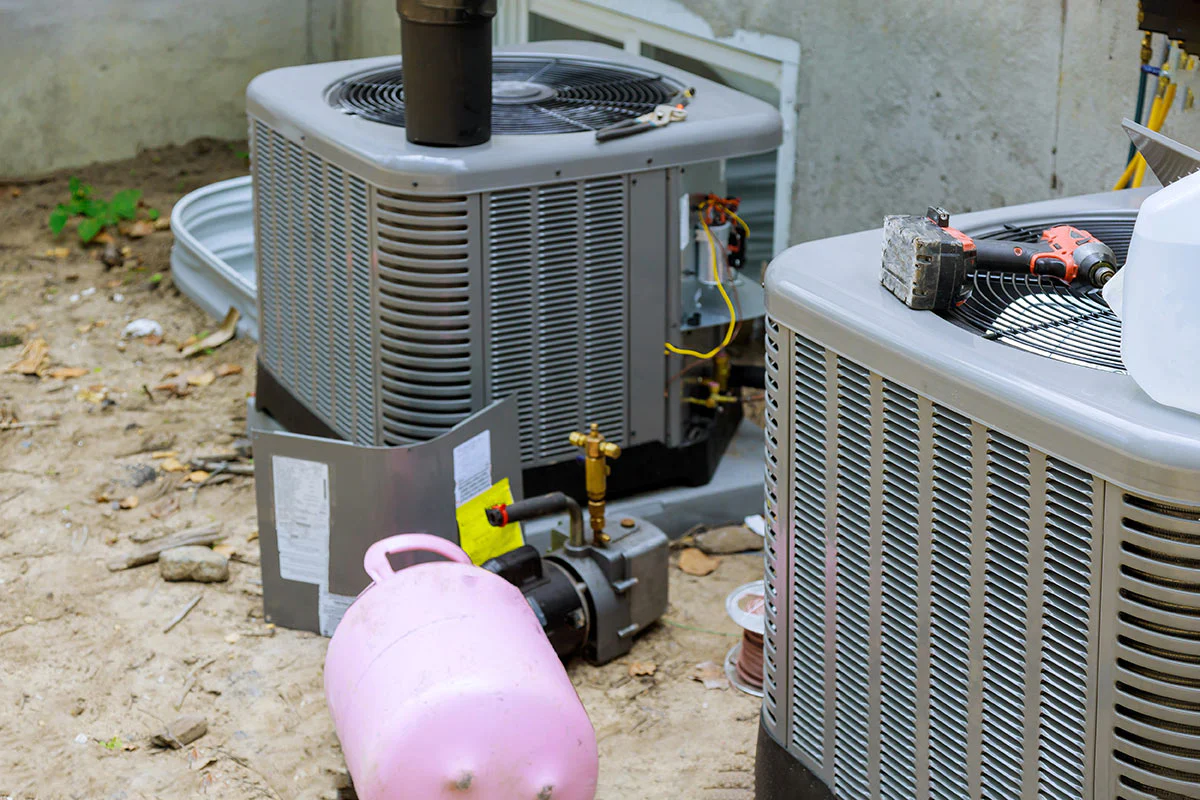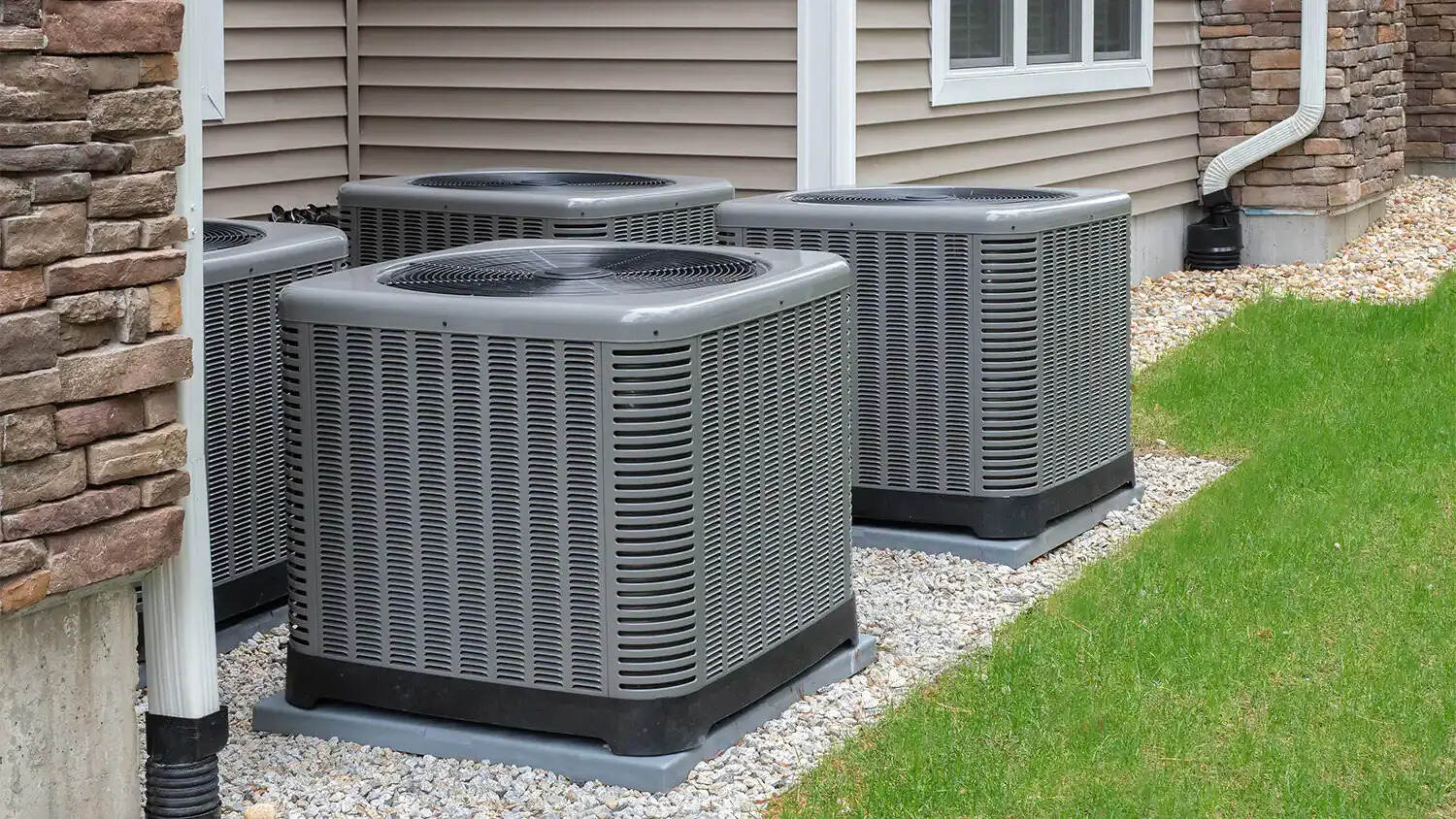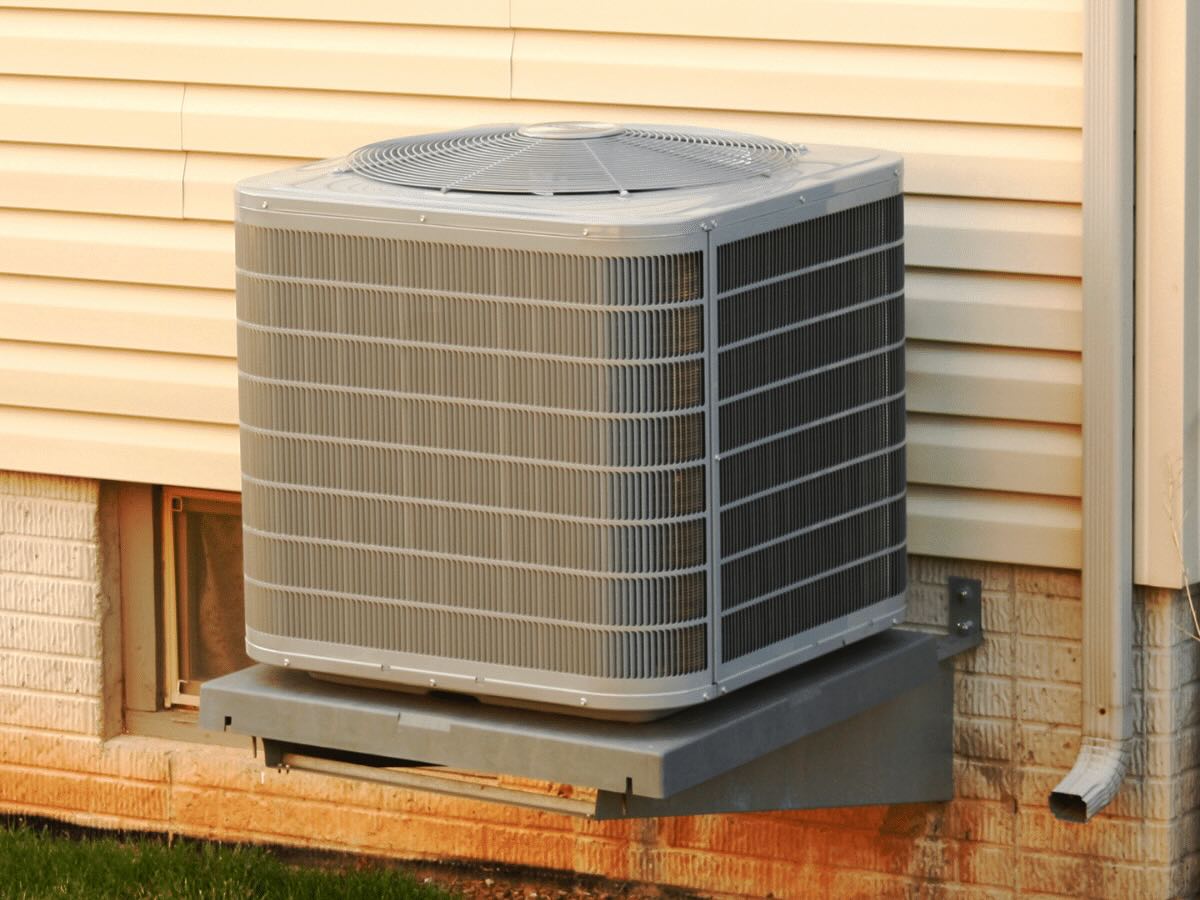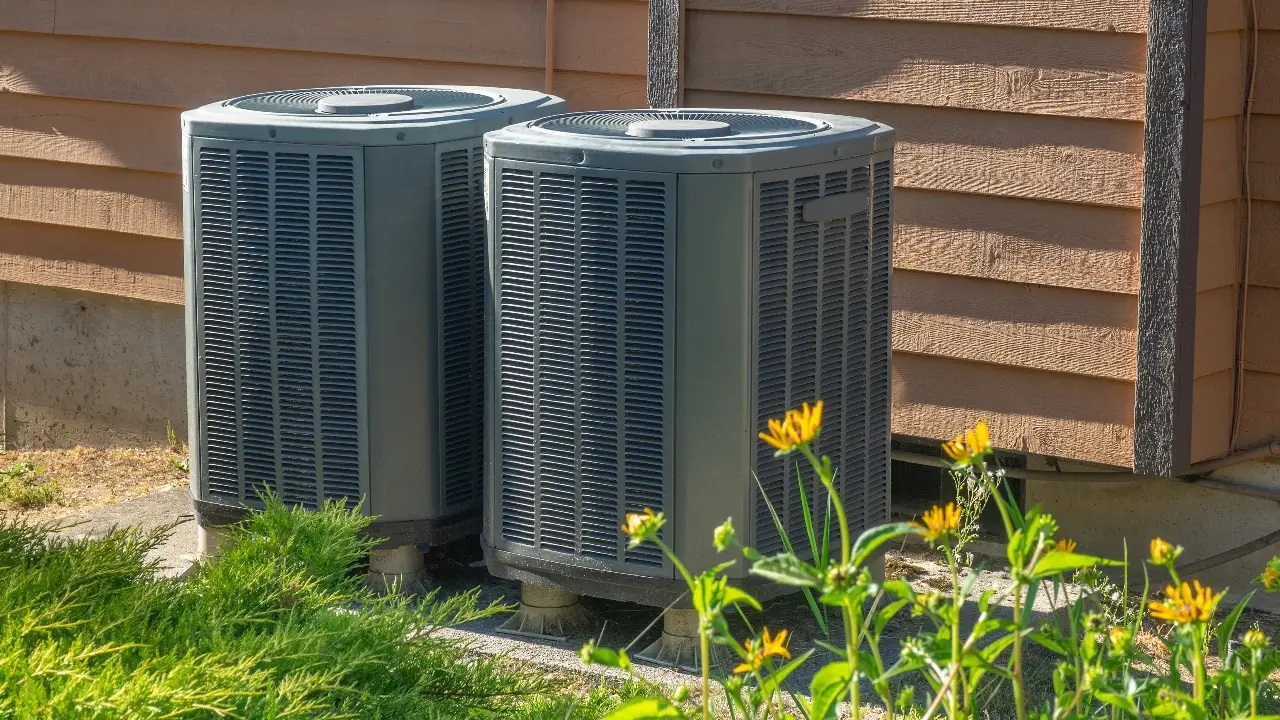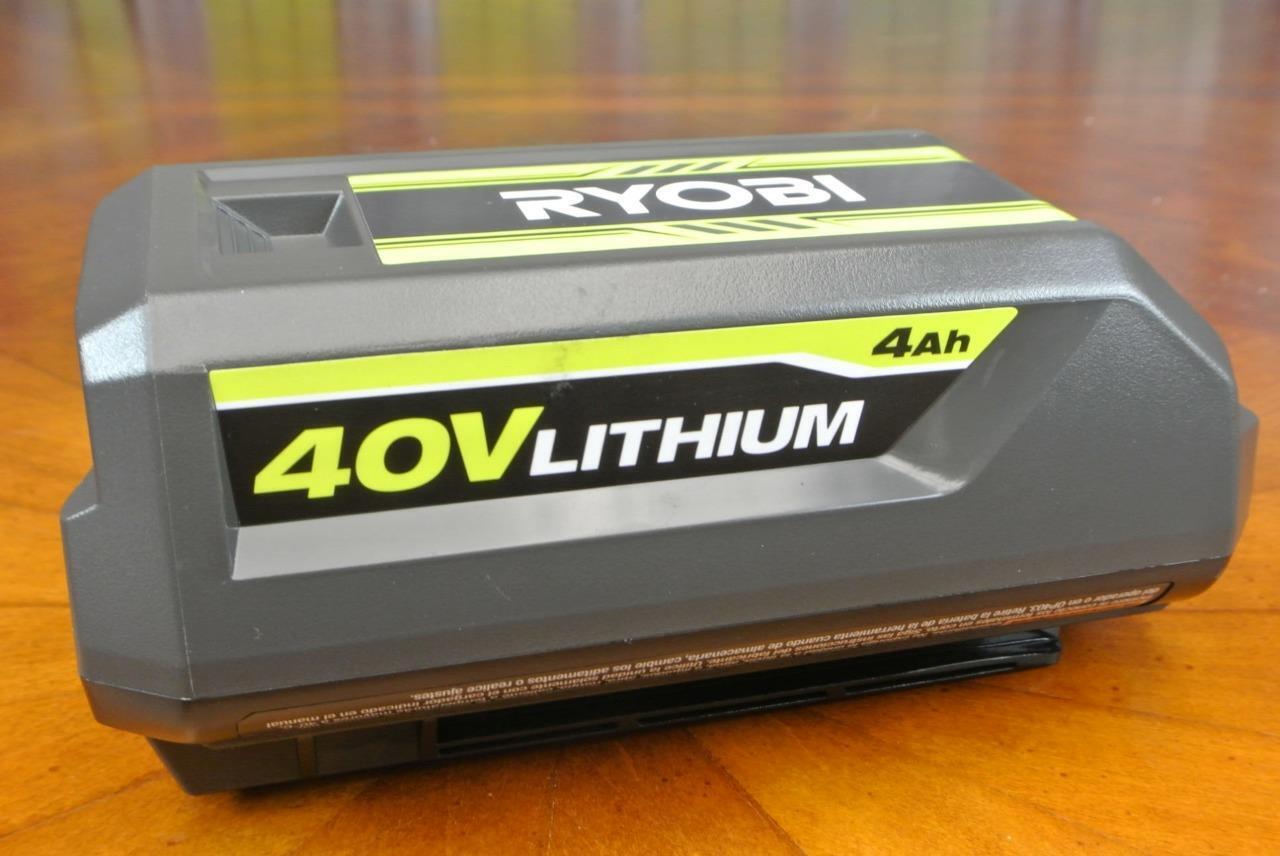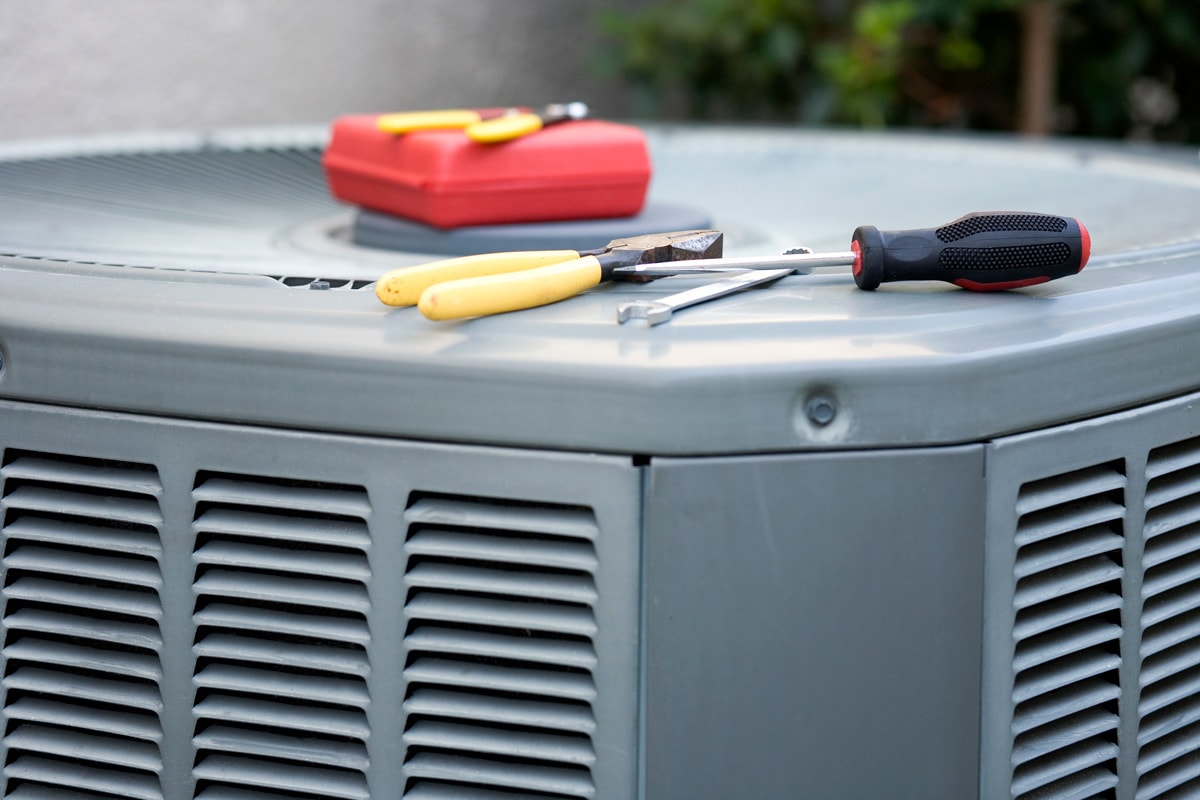Home>Home Maintenance>How Long Does A Central Air Conditioning Unit Last
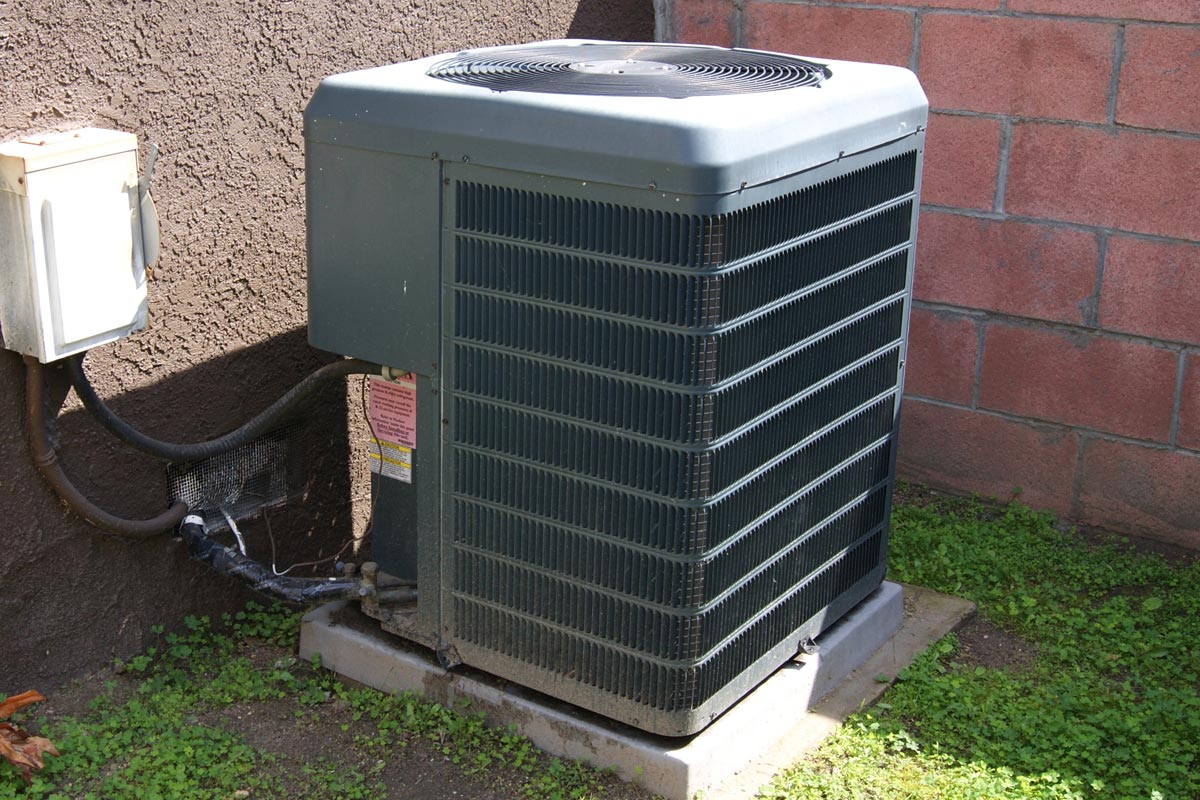

Home Maintenance
How Long Does A Central Air Conditioning Unit Last
Modified: October 27, 2024
Learn about the lifespan of central air conditioning units and the importance of home maintenance. Ensure your system lasts by following these tips.
(Many of the links in this article redirect to a specific reviewed product. Your purchase of these products through affiliate links helps to generate commission for Storables.com, at no extra cost. Learn more)
Introduction
Welcome to our guide on the lifespan of a central air conditioning unit. Whether you just installed a new unit or have had one in your home for several years, it’s important to understand how long you can expect it to last and the factors that can impact its lifespan. A central air conditioning unit is a significant investment, and knowing how to maintain it properly can help you avoid unnecessary expenses and ensure optimal performance.
Central air conditioning units play a crucial role in maintaining a comfortable living environment, particularly during the hot summer months. These units cool and dehumidify the air in your home, providing a respite from the sweltering heat. But like any mechanical system, they have a limited lifespan and will eventually require replacement.
In this article, we will explore the average lifespan of a central air conditioning unit and the factors that can influence its longevity. We will also discuss the signs that indicate your unit may be failing and provide maintenance tips to help extend its lifespan. Finally, we will touch on when it may be time to consider replacing your central air conditioning unit.
So, whether you’re a homeowner looking to maximize the lifespan of your existing unit or a prospective buyer curious about the expected lifespan of a central air conditioning unit, read on to learn more.
Key Takeaways:
- Regular maintenance, proper installation, and high-quality units can extend the lifespan of your central air conditioning unit, providing efficient cooling for up to 15 years.
- Signs of a failing air conditioning unit include insufficient cooling, weak airflow, strange noises, and ice accumulation. Timely repairs and maintenance can prevent further damage and costly replacements.
Read more: How Does Home Central Air Conditioning Work
Factors Affecting the Lifespan of a Central Air Conditioning Unit
The lifespan of a central air conditioning unit is influenced by several factors. Understanding these factors can help you assess how long you can expect your unit to last and take steps to prolong its lifespan. Here are the key factors that can affect the lifespan of a central air conditioning unit:
- Installation Quality: The quality of the installation plays a crucial role in the lifespan of an air conditioning unit. Improper installation can lead to problems down the line, such as leaks, inefficient operation, and premature wear and tear. It’s important to hire a professional HVAC technician with experience in installing central air conditioning systems to ensure a proper and efficient installation.
- Maintenance: Regular maintenance is vital to keep your central air conditioning unit in good working condition. Neglecting routine maintenance can result in decreased efficiency and potential breakdowns. Regularly cleaning or replacing air filters, checking and cleaning the condenser coils, and ensuring proper lubrication of moving parts can all contribute to extending the lifespan of your unit.
- Usage Patterns: How often and how intensively you use your central air conditioning unit can impact its lifespan. Units that run for extended periods or are frequently turned on and off can experience more wear and tear. Additionally, running the unit at extreme temperatures or constantly setting it to high cooling levels can put added strain on the system.
- Environmental Factors: The climate and environmental conditions in which your central air conditioning unit operates can also affect its lifespan. Units in regions with extreme heat or high humidity may have to work harder, leading to accelerated wear and tear. Additionally, exposure to corrosive elements such as saltwater or pollutants can cause damage over time.
- Equipment Quality: The quality and brand of the central air conditioning unit itself can have a significant impact on its lifespan. High-quality units from reputable manufacturers are typically built to last longer and may come with better warranties. Investing in a reliable and durable unit can pay off in the long run.
- Proper Sizing: Ensuring that your central air conditioning unit is properly sized for your home is crucial. If the unit is too small, it will have to work harder to cool your space, leading to increased wear and tear. On the other hand, an oversized unit may cycle on and off frequently, causing unnecessary strain on the system. Consulting with an HVAC professional to determine the correct size for your unit is essential.
By considering these factors and taking appropriate measures, you can maximize the lifespan of your central air conditioning unit and enjoy efficient cooling for years to come.
Average Lifespan of a Central Air Conditioning Unit
The average lifespan of a central air conditioning unit depends on various factors, including the quality of the unit, installation, maintenance, and usage patterns. While there is no definitive answer, a well-maintained and properly installed central air conditioning unit can last anywhere from 12 to 15 years.
However, it’s important to note that this is just an average estimate. There are cases where air conditioning units have lasted well beyond the 15-year mark, while others have required replacement before reaching the 10-year mark. Factors such as the brand, model, and environmental conditions can significantly impact the lifespan of the unit.
High-quality units from reputable brands tend to have a longer lifespan. These units are often built with durable components and undergo rigorous testing to ensure reliability. They may also come with extended warranties, providing peace of mind for homeowners.
On the other hand, units of inferior quality or those that are not properly installed or maintained may have a shorter lifespan. Neglecting regular maintenance tasks, such as cleaning or replacing air filters, checking refrigerant levels, and cleaning condenser coils, can lead to decreased efficiency and premature wear and tear.
Additionally, usage patterns can impact the lifespan of a central air conditioning unit. Units that are used excessively or subjected to extreme temperatures may experience more stress and wear on their components. Running the unit at very high cooling levels or constantly turning it on and off can also shorten its lifespan.
Environmental factors also play a role. Units in regions with extreme heat or high humidity may have to work harder, leading to accelerated wear and tear. Similarly, units located in areas with high levels of pollutants or corrosive elements, such as saltwater, may experience faster deterioration.
Overall, to maximize the lifespan of your central air conditioning unit, it’s essential to invest in a high-quality unit, have it properly installed by a professional, and perform regular maintenance tasks. By doing so, you can ensure optimal performance, energy efficiency, and longevity for your cooling system.
Signs that Your Central Air Conditioning Unit is Failing
As a homeowner, it’s important to be aware of the signs that indicate your central air conditioning unit may be failing. Catching these signs early can prevent further damage and potentially costly repairs. Here are some common signs that your central air conditioning unit is experiencing issues:
- Insufficient Cooling: If you notice that your home is not cooling as effectively as it once did, or if there are noticeable temperature differences between rooms, it could be a sign of a failing air conditioning unit. It may struggle to cool your home evenly or fail to reach the desired temperature.
- Weak Airflow: If you feel weak or restricted airflow coming from the vents, it could indicate a problem with the fan or the ductwork. Reduced airflow can result from clogged air filters, a malfunctioning fan motor, or issues within the duct system.
- Strange Noises: Unusual noises coming from your central air conditioning unit, such as grinding, squealing, or banging sounds, may suggest mechanical issues. These noises could be a sign of worn-out bearings, a loose belt, or other damaged components.
- Frequent Cycling: If your central air conditioning unit is constantly cycling on and off, it may be struggling to maintain the desired temperature. This constant cycling can indicate a problem with the thermostat, a refrigerant leak, or an issue with the unit’s control system.
- Foul Odors: Persistent musty or unpleasant odors coming from the vents when the air conditioning is running can be a sign of mold or mildew growth in the system. It’s important to address this issue promptly to prevent further air quality issues and potential health risks.
- Escalating Energy Bills: If you notice a sudden increase in your energy bills without any additional usage, it could be a sign that your central air conditioning unit is not operating efficiently. This decrease in efficiency can result from various issues, such as clogged filters, refrigerant leaks, or worn-out components.
- Ice Accumulation: If you notice ice forming on the air conditioning unit or the refrigerant lines, it’s a clear indication that something is wrong. Ice accumulation can be caused by low refrigerant levels, restricted airflow, or a malfunctioning fan motor.
If you observe any of these signs, it’s essential to contact a professional HVAC technician to diagnose and address the issue promptly. Ignoring these problems can lead to further damage to your air conditioning unit and potentially higher repair costs. Regular maintenance and timely repairs can help extend the lifespan and improve the efficiency of your central air conditioning unit.
Regular maintenance and proper care can help extend the life of a central air conditioning unit. It is recommended to have the unit serviced annually by a professional to ensure it operates efficiently and lasts longer.
Maintenance Tips to Extend the Lifespan of Your Central Air Conditioning Unit
Regular maintenance is key to keeping your central air conditioning unit running smoothly and extending its lifespan. By following these maintenance tips, you can improve the efficiency of your unit and prevent costly repairs:
- Change or Clean Air Filters: Dirty or clogged air filters can restrict airflow, reducing the efficiency of your unit. Check the filters regularly and clean or replace them as needed, typically every one to three months.
- Clean the Condenser Coils: Over time, the condenser coils on the outdoor unit can accumulate dirt, debris, and grime. Regularly check and clean the coils using a soft brush or hose to ensure optimal heat transfer and efficient cooling.
- Clear the Surrounding Area: Trim any vegetation or shrubs near the outdoor unit to maintain proper airflow. Ensure that there is at least two feet of clearance around the unit to prevent obstructions and allow for easy access during maintenance.
- Check and Clean the Evaporator Coil: The evaporator coil is located in the indoor unit and can accumulate dirt and dust over time. Check the coil annually and clean it if necessary. A professional HVAC technician can perform this task safely and effectively.
- Inspect and Clean the Drainage System: Regularly check the condensate drain line and pan for any clogs, debris, or mold growth. Clean the drain line using a mixture of bleach and water to prevent blockages and ensure proper drainage.
- Check and Lubricate Moving Parts: The moving parts of your air conditioning unit, such as the fan motor and bearings, may require lubrication to reduce friction and prevent wear and tear. Refer to the manufacturer’s instructions or consult an HVAC professional for guidance.
- Test and Calibrate the Thermostat: Periodically test the accuracy of your thermostat and make sure it is calibrated correctly. A malfunctioning thermostat can cause the air conditioning unit to work harder than necessary, reducing its lifespan.
- Inspect Electrical Connections: Regularly check the electrical connections of your unit for signs of wear, damage, or loose connections. Faulty connections can lead to inefficient operation and potential safety hazards.
- Schedule Annual Professional Maintenance: Consider scheduling an annual maintenance service with a professional HVAC technician. They can perform a thorough inspection, cleaning, and tune-up of your central air conditioning system to identify and address any potential issues.
By following these maintenance tips and investing in regular professional maintenance, you can prolong the lifespan of your central air conditioning unit and ensure it operates at peak efficiency. A well-maintained unit not only saves you money on energy bills but also provides a more comfortable living environment.
Read more: How Long Does AC Unit Last
When to Consider Replacing Your Central Air Conditioning Unit
While regular maintenance and timely repairs can extend the lifespan of your central air conditioning unit, there comes a time when replacement is the best course of action. Here are some signs that indicate it may be time to consider replacing your central air conditioning unit:
- Frequent and Costly Repairs: If your air conditioning unit requires frequent repairs that are becoming increasingly expensive, it may be more cost-effective to invest in a new unit. Continuing to repair an old and inefficient system can result in ongoing expenses that outweigh the benefits.
- Old Age: Central air conditioning units have an average lifespan of 12 to 15 years. If your unit is reaching or exceeding this age range, it may be nearing the end of its usable life. Older units are typically less energy-efficient and may be more prone to breakdowns.
- Decreased Efficiency: As air conditioning units age, they tend to lose efficiency, resulting in increased energy consumption and higher utility bills. If you notice a significant increase in your cooling costs without a change in usage, a more energy-efficient replacement unit could help lower your expenses.
- Lack of Comfort: If your current air conditioning unit struggles to cool your home adequately or maintain a consistent temperature, it may no longer be able to meet your comfort needs. Upgrading to a newer, more powerful unit can provide better cooling performance and improved comfort.
- Unreliable Performance: If your air conditioning unit frequently breaks down, fails to start, or produces inconsistent airflow, it can cause significant inconvenience and discomfort. Investing in a new unit can provide peace of mind and a reliable cooling solution.
- Advancements in Technology: Newer air conditioning units often come with advanced features, such as programmable thermostats, zoning options, and improved energy efficiency ratings. Upgrading to a newer model can provide increased comfort, convenience, and energy savings.
- Environmental Considerations: If you have an older air conditioning unit that uses R-22 refrigerant (commonly known as Freon), it may be worth considering a replacement. R-22 is being phased out due to its harmful effects on the environment, and the cost of servicing units that use this refrigerant is increasing.
When deciding whether to replace your central air conditioning unit, it’s important to consult with a professional HVAC technician. They can assess the condition of your current system, determine if repairs are feasible, and help you select a new unit that meets your needs and budget.
By replacing your old, inefficient unit with a newer and more energy-efficient model, you can enjoy improved comfort, lower energy costs, and peace of mind knowing that your new unit will provide reliable cooling for years to come.
Conclusion
Your central air conditioning unit is a vital component of your home, providing much-needed cooling and comfort during the hot summer months. Understanding the lifespan of your unit and knowing when to consider replacement is crucial for maintaining optimal performance and avoiding unnecessary expenses.
In this guide, we discussed the factors that can affect the lifespan of a central air conditioning unit, ranging from installation quality and maintenance to environmental factors and equipment quality. By keeping these factors in mind, you can take measures to prolong the lifespan of your unit and ensure its efficient operation.
We explored the average lifespan of a central air conditioning unit, which typically ranges from 12 to 15 years. However, this can vary depending on various factors such as maintenance, usage patterns, and the quality of the unit itself.
We also discussed the signs that indicate your central air conditioning unit may be failing. These include insufficient cooling, weak airflow, strange noises, frequent cycling, foul odors, escalating energy bills, and ice accumulation. Recognizing these signs and addressing them promptly can prevent further damage and potentially costly repairs.
To extend the lifespan of your central air conditioning unit, we provided maintenance tips, such as regularly changing or cleaning air filters, cleaning condenser coils, clearing the surrounding area, checking and cleaning the evaporator coil, and scheduling annual professional maintenance. Implementing these practices can improve the efficiency and longevity of your unit.
Finally, we discussed when it may be time to consider replacing your central air conditioning unit. Factors such as frequent and costly repairs, old age, decreased efficiency, lack of comfort, unreliable performance, advancements in technology, and environmental considerations can all contribute to the decision to invest in a new unit.
Always consult with a professional HVAC technician to assess the condition of your unit and determine the best course of action. They can help you choose a suitable replacement unit and ensure a proper installation.
In conclusion, by understanding the lifespan of your central air conditioning unit, practicing regular maintenance, and being aware of the signs of failure, you can make informed decisions to maximize the lifespan of your unit and enjoy optimal cooling comfort in your home for years to come.
Frequently Asked Questions about How Long Does A Central Air Conditioning Unit Last
Was this page helpful?
At Storables.com, we guarantee accurate and reliable information. Our content, validated by Expert Board Contributors, is crafted following stringent Editorial Policies. We're committed to providing you with well-researched, expert-backed insights for all your informational needs.
